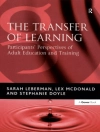‘I strongly endorse this book and feel that it holds great promise for the field.’
Ray Terrell
Coauthor of Cultural Proficiency
Proactive leadership fosters strong interethnic communities!
This timely volume provides powerful models of leadership that are effective in developing schools where positive interethnic relations can flourish. Countering the often-heard belief that troubled race relations are endemic to schools, author Rosemary Henze and her team of researchers face the issue head on by incorporating diversity issues into educational leadership. Schools are vehicles for change in race/ethnic relations when proactive leadership is developed and maintained.
Vignettes and case studies allow you to assess and develop your leadership skills in interethnic relations by helping you to
- Recognize and develop their own leadership strengths in a diverse school
- Assess how organizational structures support or constrain positive relations
- Understand the nature of ethnic conflict or tension in your school
- Identify your school′s priority needs
- Develop a core vision of interethnic relations
- Create and implement a plan for promoting positive interethnic relations
- Document the effectiveness of your plan
The broad concept of leadership presented here includes not only principals and administrators, but also teachers, parents, counselors, students, and community human relations professionals who emerge as leaders facing a range of issues—including gang violence, racial conflict, staff divisions, and other issues—that need to be addressed in the area of interethnic interactions. These representatives of schools with diverse populations form leadership teams able to speak out for real educational reform in reducing racism and prejudice in schools.
Inhoudsopgave
Acknowledgments
About the Authors
Introduction
Part I. A Framework for Developing Positive Interethnic Communities
1. Leading From Within
2. Assessing the School Context
3. Understanding Racial and Ethnic Conflict
4. Identifying High-Priority Needs–Individual and Schoolwide
5. Envisioning Positive Interethnic Relations
6. Selecting Approaches for a Coherent Plan
7. Implementing and Refining the Plan
8. Documenting and Communicating Success in Interethnic Relations
Part II. Cases in Interethnic Relations for School Leaders
9. The Ripple Effect of Conflict
10. The Power of the School Secretary
11. Challenging Attitudes
12. What′s Data Got to Do With It?
13. Dilemmas of Pluralism and Unity
14. Maintaining Confidentiality
Resource A: Methodology
Resource B: Resources for Schools
Resource C: Alignment With Standards for School Leadership
References
Index
Over de auteur
Anne Katz, Ph D, has worked for 20 years as a researcher and evaluator for projects connected with the education of linguistically and culturally diverse students. She served as the coprincipal investigator for the national study focused on successful leadership in diverse school settings that provided the empirical base for this book. As a teacher educator, she has provided and supported professional development in the United States, Brazil, and Egypt. She was instrumental in developing standards for English as a second language through Teachers of English as a Second or Other Language. And she has assisted many school districts in developing more authentic assessments of student performance. In all her work, she has promoted the forging of links between research and the classroom to support meaningful school change.












